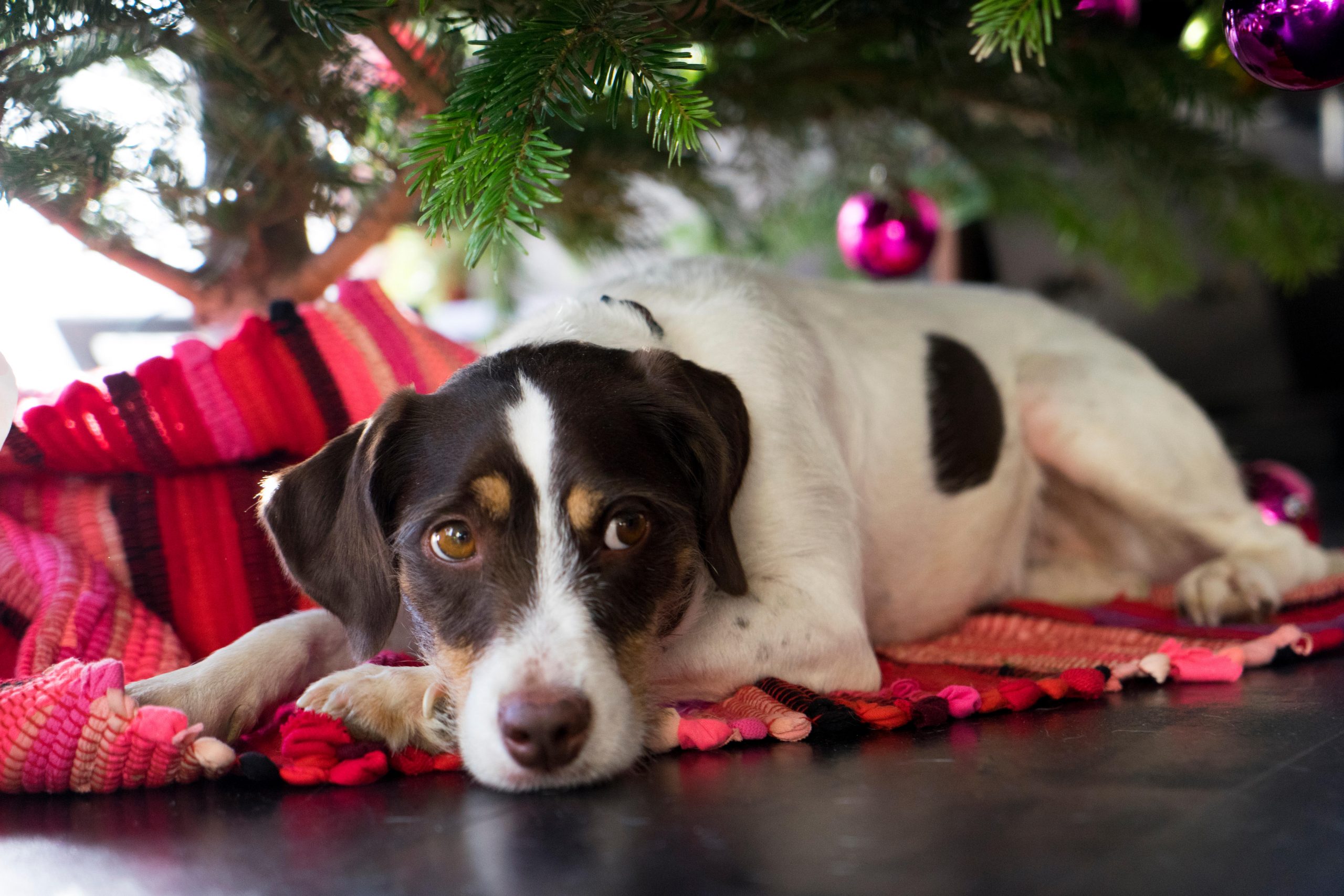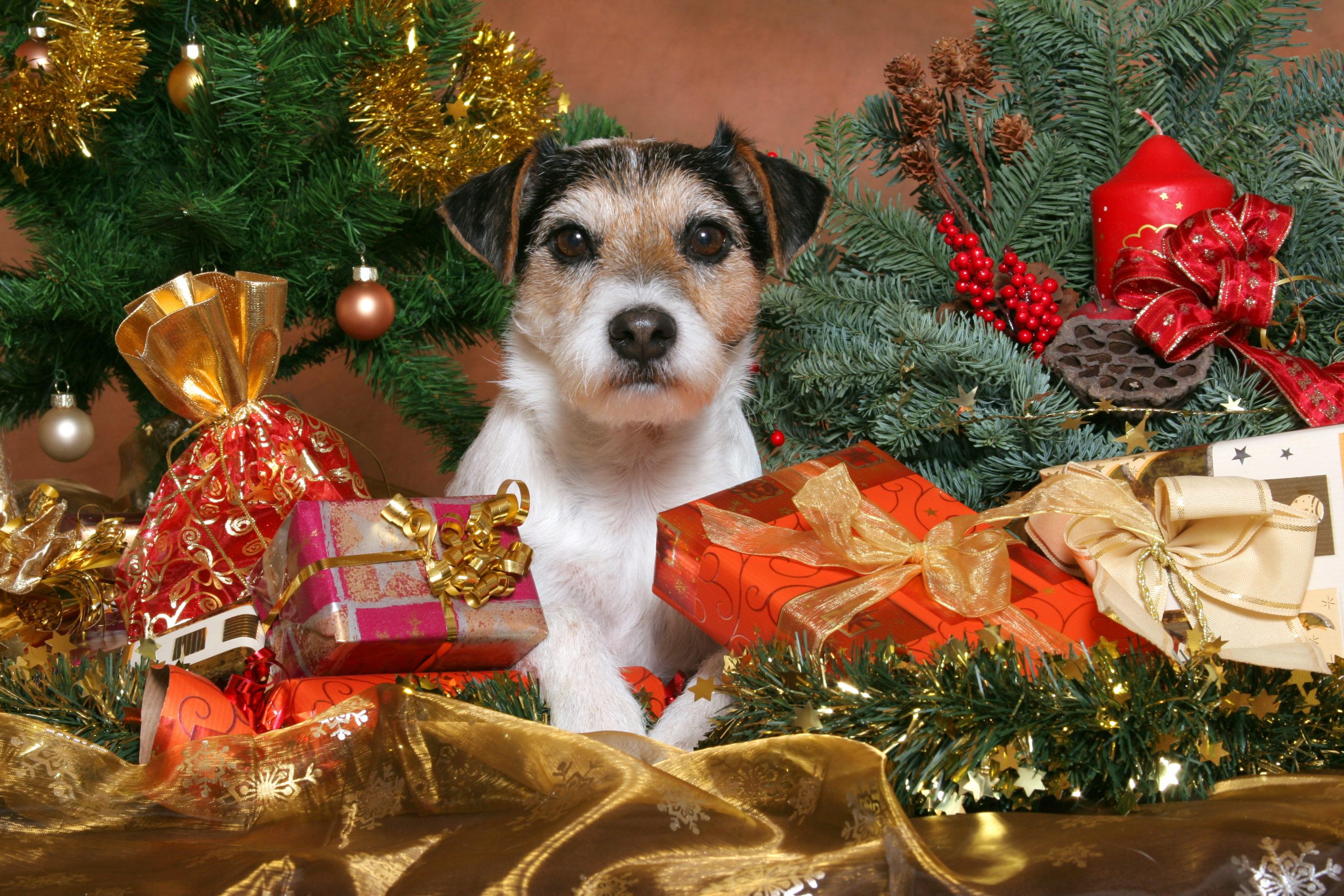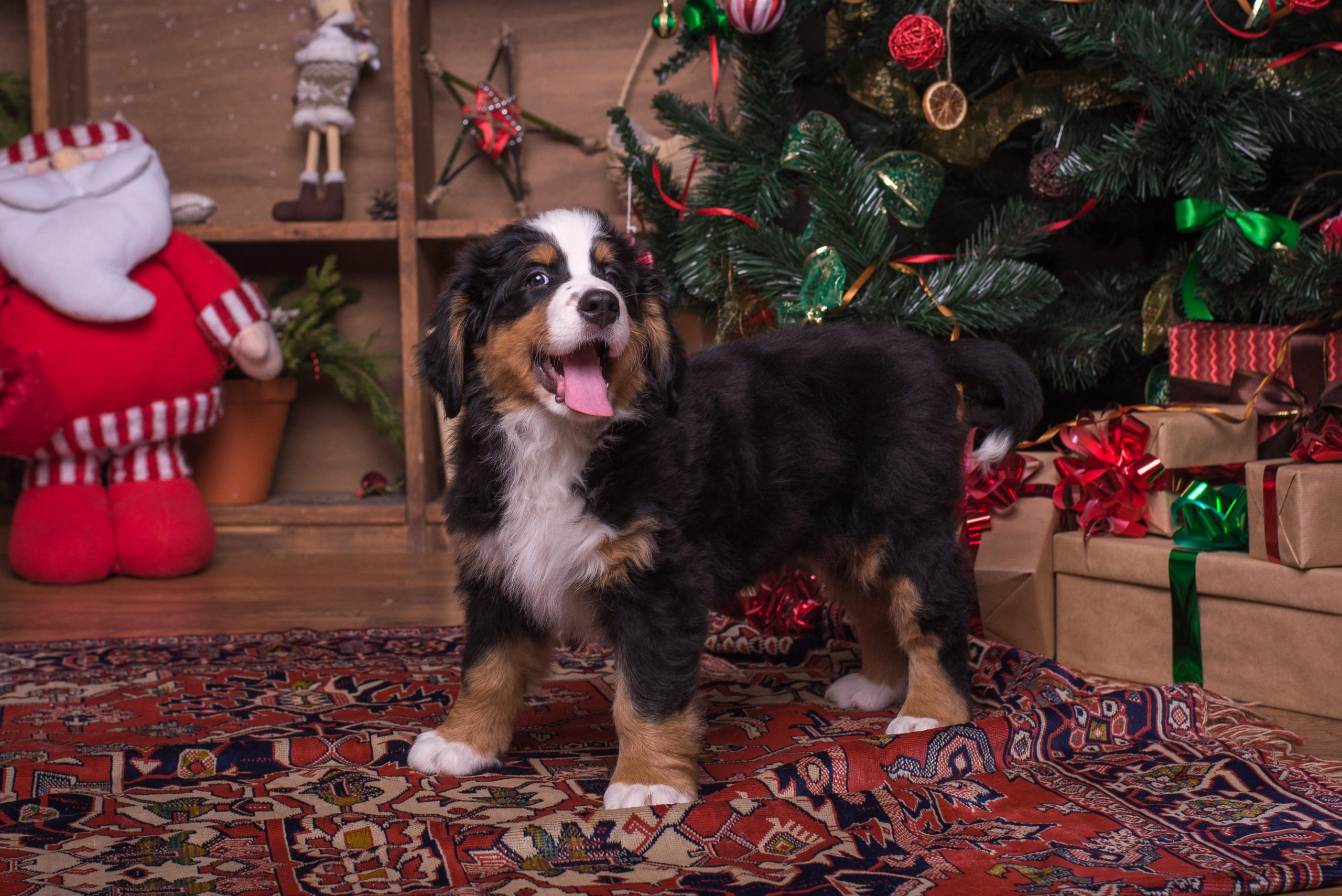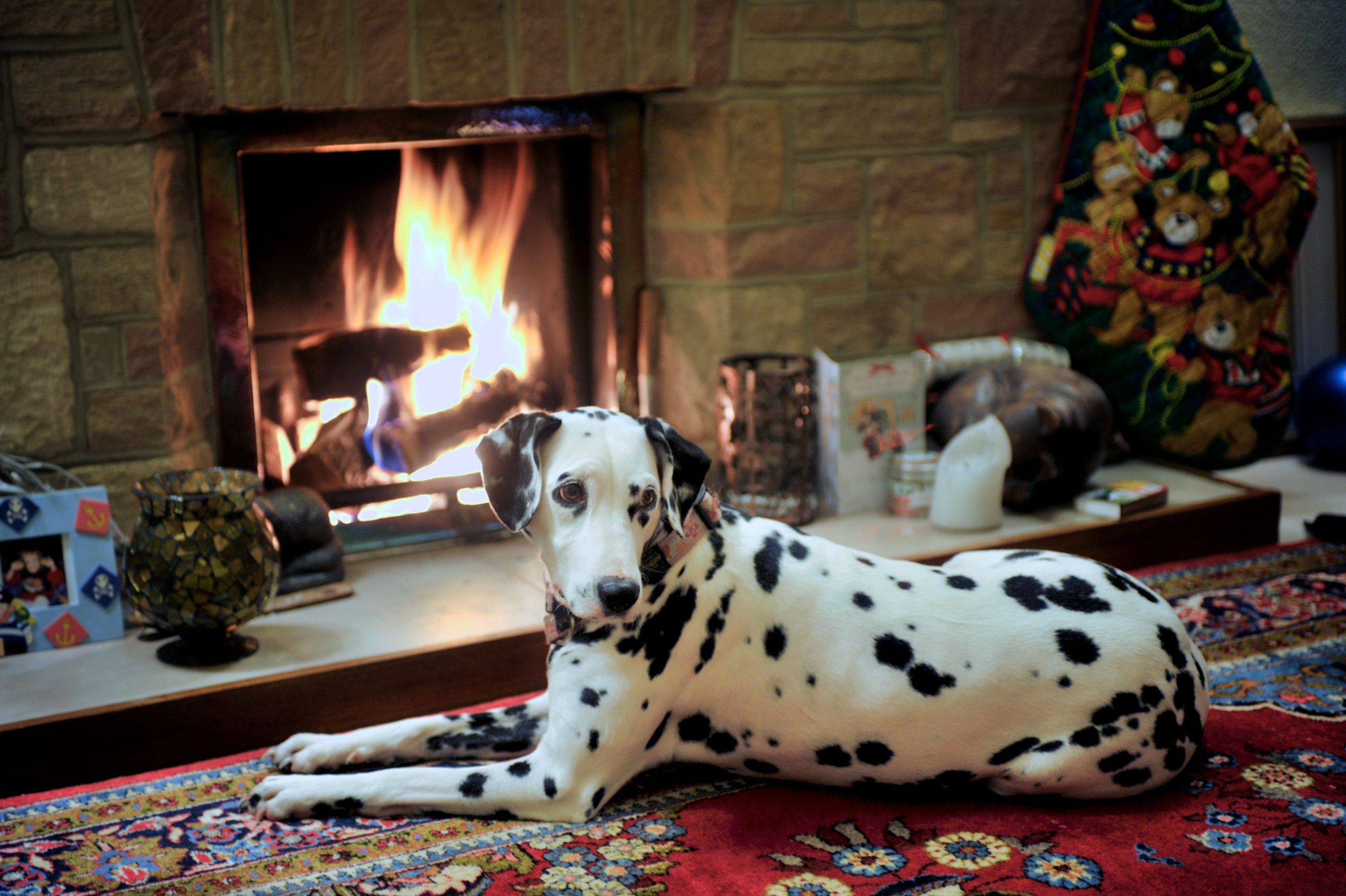'We're accidentally getting a puppy for Christmas — and we need help!' Ben Randall on helping a dog cope with Christmas
Most family homes are never more lively and raucous than they are at Christmas, but dogs don't give birth to a schedule. Ben Randall helps a reader worried about how their new puppy will cope.


The message has been out for a long time now that a dog is for life, not just for Christmas. Unfortunately, Nature can have other ideas: we don't control when dogs are on heat, and while most puppies are born in the warmer months, some do arrive in the middle of winter. If you've had your name down for a puppy from a particular breeder for a couple of years, you're not going to want to turn down the chance just because Santa is on his way.
That's the dilemma faced by this week's reader, J. L. from Leicestershire, who emailed us via paws-for-thought@futurenet.com to say the following:
'We've had our name down for 18 months to get a puppy from a local breeder with a really good reputation — but the litter is expected imminently and will be ready for us a week before Christmas. We're a busy family and there are usually lots of comings and goings over the festive season. What should we do to help our puppy settle in amid all that?'
In an ideal world, the advice would be simple: don't get a puppy at Christmas. It’ll be busy, hectic and chaotic, with lots of visitors, Christmas decorations and seasonal food, and it’s very hard to give a puppy the focus it needs in the first month of its life with you.
But life usually defies our best attempts to package things up neatly, and this is one of those times that you'll have to do your best. But there is good news too, as we'll see.
Five tips on how to help a puppy or dog survive Christmas
1. Make the most of a rare opportunity to have everyone around
Let's start with the positive. Christmas might be busy and hectic, but it's also probably the only time of year for most families when you have a precious commodity: plenty of time together. As long as you're spending Christmas at home, the chances are that you and your family will have a couple of weeks or more away from work and school. If you keep the distractions to a minimum, it's a great time for you all to be at home and help your puppy with the transition from its mother to a new life.

2. Clear your diary as much as you possibly can
A little while ago I called someone on my puppy waiting list and let them know that we'd have a puppy for them. It threw them into a spin as they had an exotic holiday booked, but once they got their heads around it they took it on the chin and cancelled. A dog is so much more than even the grandest trip abroad: this is a new member of your family who'll be with you for 10 or 12 years, possibly even more — and that wonderful experience demands a bit of sacrifice. I'm not saying don't have anybody over, but keep visitors down and avoid hosting one of those big gatherings where 10 people all come around on the same day. Also try to avoid going out visiting yourselves; you might miss a few parties, but if it helps get your dog into a positive pattern right from the start it'll be more than worth it.
3. Don't deck the halls with too much holly — or anything else — and puppy-proof your house
Here's a mental image for you: picture your new dog sitting happily in your kitchen in its dog bed, chewing happily on a small toy. Now imagine the same exact scene, except next to the dog is a Christmas tree festooned with lights, tinsel, sparkly ornaments and with chocolate treats hanging from the branches. What do you think a lively young puppy is going to want to play with? So be sensible about decorations: keep them plainer than you normally would, and out of reach of curious paws and jaws.
Exquisite houses, the beauty of Nature, and how to get the most from your life, straight to your inbox.
Puppy-proofing in general is a must for any new dog owner, but all the most so at Christmas. It's not just decorations that need to be treated carefully: open fires or log burners, piles of presents, and all the seasonal treats and dishes that sit around the house for the duration need to be thought about. And please, please keep the chocolates well out of reach and locked away. Chocolate caan be potentially poisonous to dogs, and the last thing you want is to have to call the vet because your new puppy has eaten half a box of After Eights.

4. When you have visitors, give the puppy a calm place to have quiet time
I'd still expect you to have some visitors and that won't actually be a bad thing, since introducing them to new people will be part of life. The key is to make sure you give the dog time out and away, ideally in a quiet room in a dog crate or bed, away from those visitors. If the visitors bring children, make sure they are supervised all the time – kids can get very overexcited at Christmas, and running around the house chasing the puppy will seem a fun game for both kids and dog right up until the moment when it goes over the edge, and it could also sow the wrong seeds in terms of behaviour from an early age.
I’d prefer to teach the visiting kids to be calm, whisper, and be gentle with the puppy — and maybe get them to teach the puppy to sit at mealtimes, or something else related to their training. I did that with my nephew and niece from the age of six: when they came come to stay, they'd get up 5am to help me in the kennels – it was new and exciting for them, and they loved it. Today, they both own dogs with their own families, and their dogs are perfect family companions.
5. Be careful — VERY careful — if your visitors bring their own dogs
First off, if your puppy has yet to have its second vaccinations, ask visitors not to bring their dog. That said, I know that can be hard, particularly if close relatives have travelled from across the country. If there's really no choice then separate the dogs, keeping them in different rooms in the house.
Once your puppy is fully vaccinated, though, a calm and well-trained guest dog can be a real boon. It's beneficial for puppies to socialise with other dogs, and it could help them learn some good behaviour early on.
If that's not the case, however… then you might have to have a difficult conversation. If you've got a guest coming who is going to bring a dog that's naughty, highly driven, wired — the sort of dog that jumps up on people or goes crazy at the sound of the doorbell — it won’t be a good combination with your puppy and you need to ask them not to do so. It'll be as excruciating as talking over a bad school report with a teacher, but you really will benefit from grasping the nettle — and you never know, a few well-chosen words might inspire your friend or relative to rethink their training regime with their own dog.
For more detailed advice about Ben Randall’s positive, reward-based and proven BG training methods, one-to-one training sessions, residential training or five-star dog-boarding at his BGHQ in Herefordshire, telephone 01531 670960 or visit www.ledburylodgekennels.co.uk. For a free seven-day trial of the Gundog app, which costs £24.99 a month or £249.99 a year, visit www.gundog.app/trial.

This article was originally published in 2022
